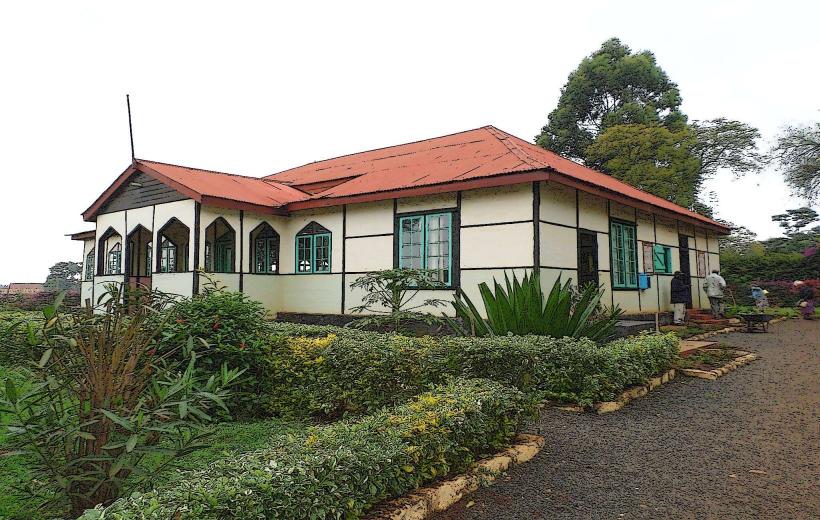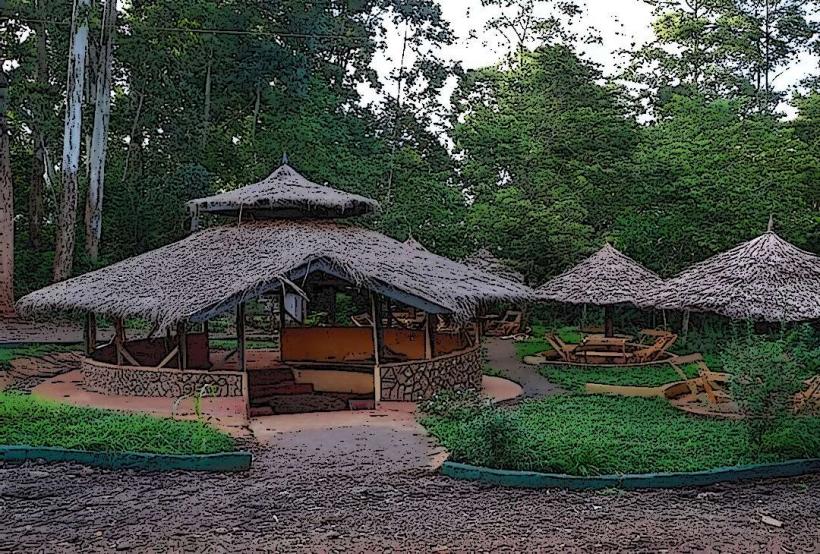Information
Landmark: Baden-Powell's GraveCity: Nyeri
Country: Kenya
Continent: Africa
Baden-Powell's Grave, Nyeri, Kenya, Africa
Baden-Powell's Grave, located in Nyeri, Central Kenya, holds great historical and cultural significance as it is the final resting place of Robert Baden-Powell, the founder of the Scouting movement, and his wife, Olave Baden-Powell. The grave is situated in St. Peter's Cemetery, within the grounds of Wajee Nature Park, and has become an important pilgrimage site for Scouts and Guides from all over the world.
Historical Background
Robert Baden-Powell, born in 1857 in England, was a military officer who became famous for his leadership during the Second Anglo-Boer War in South Africa. His experiences during the war inspired him to write a manual on military skills for young boys, which later evolved into the Scouting movement. In 1907, Baden-Powell held the first experimental camp on Brownsea Island, which marked the beginning of Scouting.
After his retirement from the army in 1910, he focused his efforts on promoting Scouting globally. He visited Kenya several times and became fond of the country, particularly the climate and the peaceful environment of Nyeri. He decided to make Nyeri his final resting place, and in 1941, after his death, he was buried there.
Baden-Powell died on January 8, 1941, at the age of 83. He chose Kenya as his burial site because of his love for the land and its people, and he was buried at the foot of the Aberdare Mountains.
Olave Baden-Powell, his wife and the World Chief Guide, passed away in 1977, and her ashes were interred beside her husband, in accordance with his wishes.
The Grave and Memorial
The Grave: The grave is simple and unadorned, reflecting Baden-Powell’s character, as he believed in the principle of simplicity and self-reliance. It bears a unique inscription that reads, "I have gone home," along with a circle and dot symbol, representing the Scout sign for "going home" or "I am going home." This symbol, commonly seen in Scouting, holds special meaning as it represents a journey to a final destination.
The Memorial: The memorial is a quiet, tranquil spot surrounded by beautiful natural scenery, including views of the Aberdare Mountain Range. The site features a stone plaque and the gravesite itself, as well as a memorial garden dedicated to his memory and contributions.
Cultural and Religious Significance
Pilgrimage Site: The grave has become a revered destination for Scouts and Guides from around the world. On February 22, which is Founder's Day, Scouts from various countries visit the site to pay their respects to Baden-Powell, honoring his vision and legacy in youth development. It is considered one of the most sacred Scouting sites worldwide.
National Monument: The grave was declared a national monument by the Kenyan government, recognizing the importance of Baden-Powell’s legacy in shaping the lives of millions of young people through Scouting. It is also maintained by the British government and has become a focal point for the Kenya Scouts Association and the Kenya Girl Guides Association.
The Baden-Powell Historical Garden
Located adjacent to the grave, the Baden-Powell Historical Garden is a small but serene area that houses a museum and several exhibits related to the history of Scouting. The museum showcases memorabilia such as scouting badges, photos of Baden-Powell's life, letters, and documents related to the founding and spread of the Scouting movement. Visitors can learn about the development of Scouting in Kenya and other parts of the world.
The garden provides a peaceful setting for reflection and contemplation, with the gravesite offering a quiet place to honor the life of the man who inspired millions of young people around the world.
Location and Accessibility
The grave is located about 1 kilometer from the Outspan Hotel in Nyeri, along a minor road leading to the Nyeri War Cemetery. The Baden-Powell Historical Garden and the grave can easily be accessed by visitors staying in Nyeri, and there are signs to guide tourists to the site.
The area is well-maintained, and visitors often come to reflect on Baden-Powell's legacy, as well as to learn more about the Scouting movement and the role Kenya played in the development of this global youth organization.
Visiting the Site
Activities: Visitors to Baden-Powell’s grave can explore the memorial garden, reflect on the life and work of Baden-Powell, and enjoy the natural beauty surrounding the site. The garden is a peaceful and contemplative location, providing an opportunity to honor a man who made a lasting impact on the world.
Opening Hours: The site is generally open to visitors during the day. However, it is advisable to check in advance for specific visiting hours, especially during significant Scouting events like Founder's Day.
Conclusion
Baden-Powell’s Grave in Nyeri is not only a place of historical importance but also a site that carries deep emotional and cultural meaning for Scouts and Guides worldwide. As a symbol of the founder's ideals and contributions to the global Scouting movement, it serves as a place of remembrance and reflection. Whether you are a Scout, a history enthusiast, or simply someone visiting Kenya, the grave and its surrounding historical garden provide a quiet space to honor the memory of a man whose influence continues to shape youth development across the globe.








